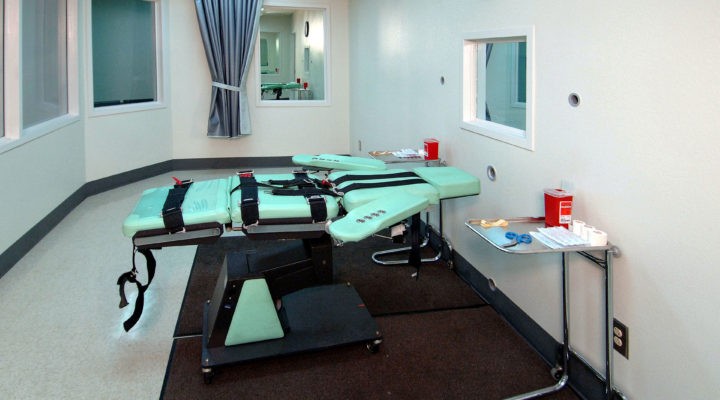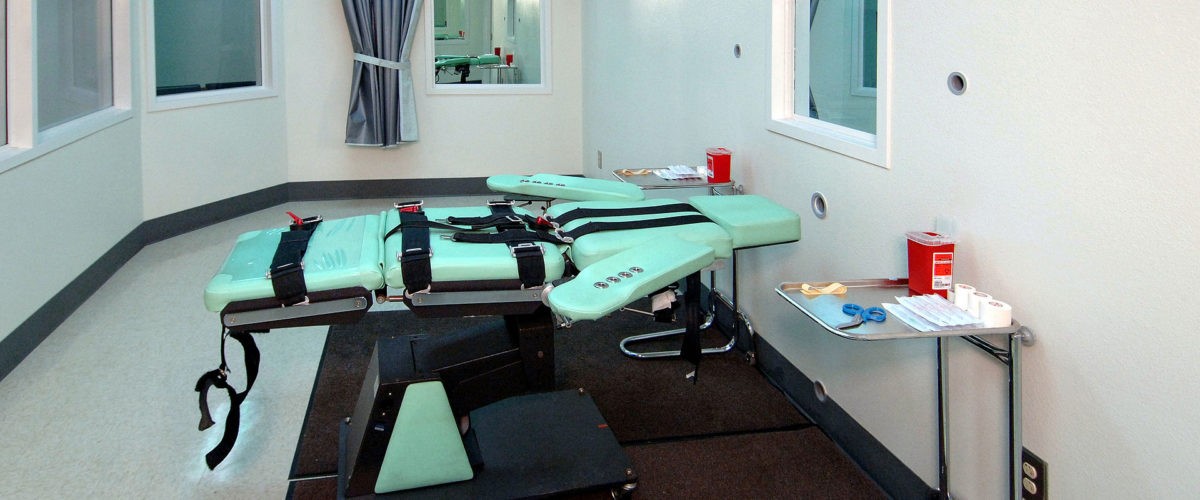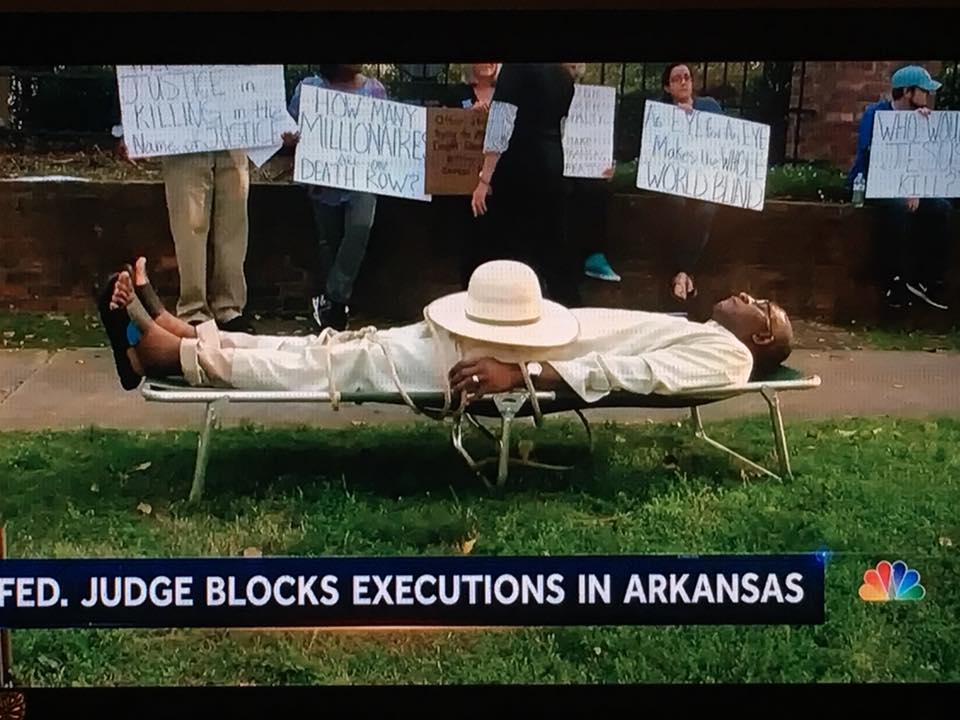A second Arkansas judge has ruled the state must reveal more information about drugs used in lethal injections for capital punishment.
Pulaski County Circuit Judge Mackie Pierce ruled Sept. 19 that officials must disclose the labels on its new supply of midazolam, a sedative used in its three-drug lethal injection process, intended for use in the execution of 62-year-old Jack Gordon Greene. Greene is scheduled to die by lethal injection Nov. 9 for the 1991 murder of Sidney Jethro Burnett, a 69-year-old retired minister who lived in Knoxville, Ark.
Pierce’s decision is similar to an order in April by Circuit Judge Wendell Griffen temporarily blocking the use of another drug, a muscle relaxer called vecuronium bromide, which the drug’s supplier claimed the Department of Corrections obtained under false pretenses by not disclosing it was to be used for executions rather than legitimate medical purposes.
After granting the temporary restraining order April 16, Griffen, also pastor of a Cooperative Baptist Fellowship church, attended a Good Friday prayer vigil protesting the planned execution of eight men over an 11-day period beginning the day after Easter.
Griffen, pastor of New Millennium Church in Little Rock, was photographed lying on a cot posing as a dead man, an act he described as “in solidarity with Jesus, the leader of our religion who was put to death by crucifixion by the Roman Empire,” prompting controversy.
The state Supreme Court barred Griffen from hearing any death penalty cases and referred him to the Judicial Discipline and Disability Commission. CBF leaders participated in a rally in June supporting his right to express his religious beliefs while serving as an elected judge.
Both cases involve secrecy provisions of the 2015 Method of Execution Act intended to protect death-penalty drug providers from negative publicity attached to using a vital medicine to kill.
Pierce said the law as written does not shield drug manufacturers from public disclosure under state open-record laws. Griffen said denying information about execution drugs robs inmates of the right to challenge in court the process intended to effectuate their deaths.
Prison officials say they would be unable to purchase execution drugs without the guarantee that no one will know where they came from.
McKesson Medical Surgical Inc., a distributor of medical and surgical supplies and equipment based in Richmond, Va., says the Arkansas Department of Corrections is aware the manufacturers of vecuronium prohibit its sale to states and correctional facilities that administer capital punishment.
Knowing McKesson was contractually prohibited from selling the drug for non-intended purposes, the company says corrections officials ordered vecuronium over the phone from a sales representative who had previously sold them products like surgical gloves, syringes, stethoscopes and other commonly used medical products.
McKesson claims officials misled the employee into thinking it was for the benefit of the licensed physician and would be used for legitimate medical purposes such as calming muscles during surgery or while on a breathing machine.
Company officials say prison officials knew the sale was a mistake and want the order to be returned. The case is headed toward the Arkansas Supreme Court.
Arkansas managed to carry out four of the eight scheduled executions in April before its existing supply midazolam reached its expiration date. They were the first in Arkansas since 2005. Three of the surviving death row inmates have appeals pending and the Arkansas Parole Board has recommended that the governor grant clemency to the fourth prisoner.
Midazolam, a sedative commonly used during colonoscopies and cardiac catheterizations, is the first of three drugs administered in the execution process. It is intended to render the prisoner unconscious for the remainder of the lethal injection. The state’s current supply was obtained Aug. 4 and expires in January 2019.
Vecuronium bromide, the second of three drugs administered in the execution protocol, functions as a paralyzing agent to stop the inmate’s breathing. The current batch expires in March 2018.
Potassium chloride, used in medical settings to prevent or to treat low blood levels of potassium, is administered to stop the heart, completing the process. The state’s supply of that drug expires at the end of August 2018.
Related news:
Baptist judge blocks Arkansas executions
Judge disputes claims that his death penalty protest violated judicial impartiality
CBF leaders side with pastor/judge in dispute over religion, bias



